At their meeting in Hamburg on July 7-8, G-20 leaders will formally launch the new G-20 Compact with Africa—the flagship Africa program of Germany’s G-20 Presidency. While there has been a long history of G-7 initiatives relating to Africa, this is the first major initiative of its kind between the G-20 and Africa. Given the wider composition of the G-20, the initiative includes all of Africa’s important economic partners—particularly China.
The Compact with Africa (CWA) sets up a structured partnership between volunteering African countries and the G-20 with the inclusion of key multilateral and bilateral partners and, also very importantly, the private sector. The CWA aims to serve as an enabling platform to boost private investment and close the large investment gap, notably in infrastructure. So far seven African countries have already joined the initiative—Côte d’Ivoire, Ghana, Ethiopia, Morocco, Rwanda, Senegal, and Tunisia.
Several novel features of the CWA initiative enhance its likelihood to succeed. First and foremost, the CWA is anchored in the African Union’s 2063 agenda and each country’s aspirations under the 2030 development agenda, emphasizing country ownership: The participating countries have complete autonomy over the programs and projects in their compacts. This tailor-made approach keeps participation in the CWA consistent with the country’s own development agendas. Relatedly, participation is voluntary and comes with a clear commitment by local authorities to promote reforms to foster strong macroeconomic, business, and financing frameworks—the three pillars of the program. Finally, bringing together the G-20, international financial organizations, the private sector, African countries, and other partners to coordinate efforts around a well-defined objective is an important and promising feature of the initiative.
Like with any programs, though, the CWA is not without risks. Given that it is a medium- to long-term program, the most important requisite is sustained commitment and continuity over the next several years, both on the part of the African governments and the G-20 and other development partners.
The G-20’s presidency turns over every year, and each new presidency has the discretion over the choice of themes to emphasize. Late this year, Argentina assumes the presidency of the G-20, and early indications are that the CWA will remain high on the agenda. Beyond next year, though, it is uncertain whether the CWA will remain in focus and sustain the momentum that it has garnered. To further improve the chance of success, a long-term commitment is necessary, including fine‑tuning and adjusting the program as necessary based on lessons learned from implementation of early cases. In addition, reinforcing the G-20’s structure to ensure operational continuity will be valuable.
Continuity risks do not just lie on the G-20 side. African countries experience turnovers in administrations, and the associated political risks as well as the challenging nature of some of the necessary reforms could undermine their commitments to the compact. Strong coordination mechanisms are also needed, both at the country and cross-country levels. By necessity, the implementation of the CWA will require alignment and effective coordination of efforts in each country with well-articulated programs and accountabilities. Coordination at the G-20 level with the involvement of key development partners is also needed to ensure collective momentum and support including addressing gaps in actions and financing.
By making Africa’s issues an important priority on the G-20, Chancellor Merkel and Germany have displayed leadership in the efforts to unlock the potential of Africa at a time when international cooperation is under assault in some corners. So far, their objective of bringing Africa closer to center stage has been successful. What about the CWA itself?
By design, the CWA places the ownership as well as the responsibility with the African countries. This signals a welcome paradigm shift in the cooperation with Africa. Notably, it will be up to African policymakers to convince the private sector both at home and abroad that the risk-return profile of their investment projects are attractive enough.
While it might be too soon to assess whether the CWA will succeed, the initiative has the potential to ignite a virtuous cycle of country actions and private investment on scale with international support. Its success should encourage other countries to join with the ultimate goal of transforming all parts of the continent. The case for optimism on the CWA is stronger than the case for pessimism. Perhaps some of the pre-emptive skepticism about the CWA reflects past experience. When it comes to Africa, there are no shortages of initiatives; there are actually over 100 recent ones. This proliferation of initiatives attests to the scale and diversity of the economic challenges of the continent, but perhaps also to insufficient coordination and continuity to ensure success of each new initiative. Coordination is a critical novelty and a strength of the CWA. With its successful launch, the challenge is to build momentum and to manage the continuity risk.
The Brookings Institution is committed to quality, independence, and impact.
We are supported by a diverse array of funders. In line with our values and policies, each Brookings publication represents the sole views of its author(s).

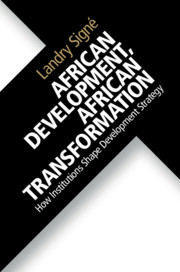
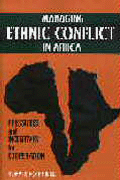
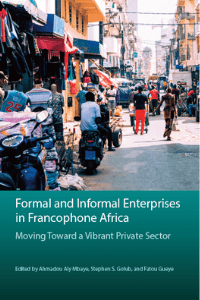
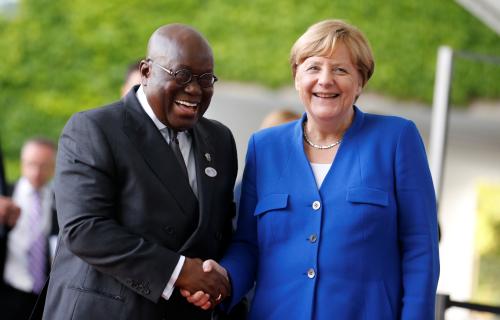
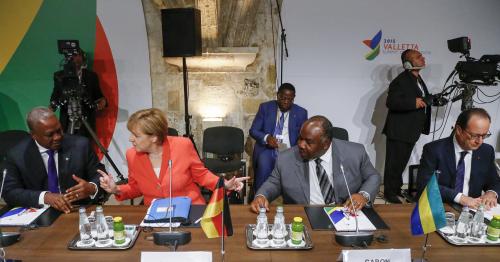





Commentary
The G-20’s new Compact with Africa: A promising initiative requiring sustained commitment
July 7, 2017